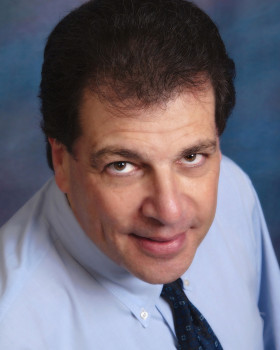By Mark J. Grossman
Shocked or surprised about the Mepham High School scandal? I’m not.
Sure, recent news reports have provided us with a new window on the chilling issue of hazing in high school sports. Since the three Mepham football players who admitted sexually assaulting younger teammates were sentenced by a Pennsylvania judge last week, it also reminds us that we need to do more to educate our children about ways to avoid these cruel rituals.
Unfortunately, mothers and fathers too often abrogate their parental responsibilities at the schoolhouse entrance, without recognition of the fact that education works best when it is a true parent-school partnership. Very simply, future incidents like this could be avoided if more parents got more involved by asking more questions about their children’s day-to-day schooling.
As the Latin legal phrase goes, school districts are expected to act “in loco parentis” — in the position, or place of, a parent. And as parents of school-age children, we expect no less. Every day, we pack the lunch box, strap on the backpack, walk our kids to the bus stop and give them a kiss goodbye, fully expecting them to return happy, healthy and a whole lot smarter having attended some of the best public schools in the country.
The problem is that few parents really know what goes on from the time the bus rounds the corner to the time their children arrive back in their loving arms. And few parents take the time to ask the important, tough questions. They too often sign field trip and overnight excursion permission slips without inquiring about such important specifics as student-adult supervision ratios, travel itineraries and boarding accommodations. It’s that culture of abrogation — of acceptance of the status quo — that creates a breeding ground of danger and abuse, such as what happened at Mepham.
For example, state law now obligates school districts to inform community members about convicted sex offenders who have taken up residence in their neighborhoods. That’s a good thing. Parents ought to know about people who live nearby with a history of deviant and dangerous behavior. Yet, no state law prevents school districts from discharging elementary school students — some as young as 4 years old — from their bus without a responsible adult present to meet them.
Ironically, parents can’t legally leave a child at home under 12 years old unsupervised, but our schools can leave kindergarteners at the corner bus stop all alone in the afternoon. It’s an issue that has been raised time and again over the past two years at our school district’s board meetings, only to fall on deaf ears.
That’s because school board meetings on Long Island are typically attended by the same dozen or two “insiders” — often people who work for the district — and by very few of the “real people” who are affected by the decisions boards make. The same can be said for PTA meetings where the same 20 moms — and, yes, a handful of dads — take the time to attend.
In the Mepham case, many of us were shocked to learn that the adults — coaches and school chaperones — slept in separate cabins as far as 50 yards away from the students’ quarters. While that may have helped the grown-ups enjoy a more restful and uninterrupted night’s sleep, it also created an unsupervised opportunity for the brutal incidents to occur.
But some districts are rethinking their policies in light of the Mepham case. Last month, officials at Long Beach High School recommended that students participating in Model Congress no longer sleep over when traveling to other Long Island districts as part of the sessions, held several times a year Friday through Sunday. The Hewlett-Woodmere school district is also reviewing its Model Congress sleepover policy.
Sure, school districts should carefully review past practices regarding student trips, especially overnight ones. But the issue should ultimately be what is best for our children, not what is easiest, or most expedient, for the adults. Good sense — not fear of litigation — should dictate school policy. While it’s easier to ban all overnight trips, that would not be good policy. Field trips can provide students with valuable real-world experiences.
But the solution is to lead by example. If we as parents accept the status quo, our children are more likely to, even if their conscience tells them that something’s not right. And that’s wrong.
We ask our children to make school a priority, but not enough of us demonstrate to our children that their schooling is a priority for us as well.
Mark J. Grossman is on the board of the South Country Central School District.
Mark J. Grossman, Parents in Passenger’s Seat
Newsday, 01-18-2004. Copyright (c) 2004, Newsday, Inc.
